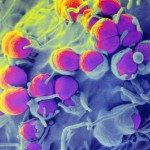Link to Pubmed [PMID] – 17700294
J. Nerv. Ment. Dis. 2007 Aug;195(8):631-9
Research has suggested those with chronic schizophrenia are impaired in social functioning, and that those early in the illness also exhibit these impairments. However, the factors underlying and contributing to social dysfunction have not yet been well delineated, particularly within a first episode sample. The current study sought to investigate the role of attachment style and personality characteristics in the social dysfunction of those diagnosed with a first episode of psychosis. Ninety-six participants experiencing a first episode of psychosis were compared with control participants from 2 different samples on attachment and personality variables. Results suggested that those with a first episode of psychosis may experience more problematic attachment in peer relationships compared with nonclinical controls, and that the type and amount of differences observed may vary by gender. In addition, those experiencing a first episode of psychosis report different levels of the “big five” personality traits when compared with nonclinical controls. Finally, within the first episode sample, both personality and attachment appear to contribute variance to 3 domains of social functioning: social and individual living skills, inappropriate community behavior, and quality of life. These findings have implications for the functional significance of these psychological constructs.

